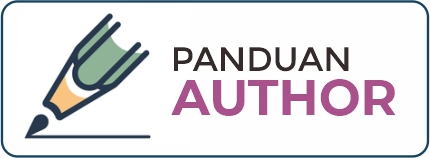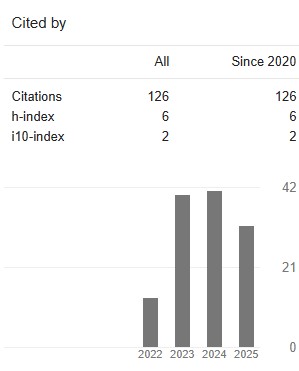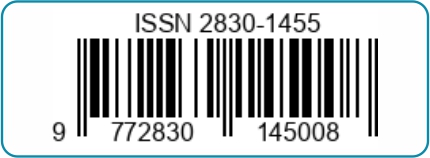Apakah Zakat, Infak dan Sedekah dapat Menumbuhkan Kemandirian Ekonomi?
Can Zakat, Infaq and Alms Encourage Economic Independence?
DOI:
https://doi.org/10.36701/al-khiyar.v2i1.539Keywords:
zakat, infaq, alms, economic independenceAbstract
This study aims to determine the effect of zakat, infaq, and alms received by mustahik on their independence in meeting their economic needs. This study uses data obtained from respondents through questionnaires and a quantitative approach through the component-based or variant-based Structural Equation Modeling (SEM) technique with Partial Least Square (PLS). The results of the study show that: (1) zakat has a positive effect on mustahik's economic independence. This means that the respondent's perception of the zakat received based on the measured indicators will encourage the birth of the respondent's economic independence; (2) infaq and alms have a significant effect on mustahik's economic independence. This means that the respondent's perception of the infaq and alms received based on the measured indicators will encourage the birth of the respondent's economic independence. The government needs to give greater attention to the handling of homeless people, beggars, buskers, and street children. Likewise, BAZ and LAZ need to touch the homeless, beggars, buskers, and street children in distributing zakat, infaq, and alms. Distribution of zakat, infaq, and alms funds should be aimed at empowerment programs/activities that lead to increased productivity of mustahik.
Downloads
References
Ahmad Erani Yustika dan Jati Andrianto, Zakat, Keadilan, dan Keseimbangan Sosial (Jakarta: Zakat & Empowering, Jurnal Pemikiran dan Gagasan, Vol. I, 2008).
Akram Khan, An Introduction to Islamic Economics, h. 35.
Buyung Riadi, Tindakan Sosial Anak Jalanan (Pengamen) di Kawasan Pantai Losari, 2011.
Chaudry, Muhammad Syarif, Funfamental of Islamic Economic System. Terj. Suherman Rosyidi, Sistem Ekonomi Islam: Prinsip Dasar (Jakarta: Kencana Prenada Media Group, 2012), h. 303.
Chaudry, Muhammad Syarif, Funfamental of Islamic Economic System. Terj. Suherman Rosyidi, Sistem Ekonomi Islam: Prinsip Dasar, h. 303-304.
Chaudry, Muhammad Syarif, Funfamental of Islamic Economic System. Terj. Suherman Rosyidi, Sistem Ekonomi Islam: Prinsip Dasar, h. 306-315.
Departemen Agama RI, Alquran dan Terjemahnya, (Semarang: Toha Putra Semarang, 2002), h. 55.
Dimas Bagus Wiranata Kusuma. The Power of Zakah in Poverty Allevation, h. 1.
Dimas Bagus Wiranata Kusuma. The Power of Zakah in Poverty Alleviation. (Selangor: University Kebangsaan Malaysia, 2010), h. 8.
Dinas Sosial Kota Makassar, diberitakan dalam Independen, www.independen.com. diakses 15 April 2013.
Gusfahmi, Rekonstruksi Peran Zakat dan Pajak Untuk Menanggulangi Kemiskinan (Jakarta: Zakat & Empowering-Jurnal Pemikiran dan Gagasan, Vol 2, 2009), h. 31-43.
Habib Ahmed, Zakah, Macroeconomics Policies, and Poverty Alleviation: Lesson from Simulations on Bangladesh (Bangladesh: journal of Islamic Economics, Banking and Finance, 2004), h. 87-89.
Habib Ahmed, Zakah, Macroeconomics Policies, and Poverty Alleviation: Lesson from Simulations on Bangladesh, h. 81.
Irawan Febianto dkk, An Analysis on the Impact of Zakah Programs in Poverty Alleviation: Case Study in Bandung, Indonesia (Bandung: Padjajaran University, 2011), h. 10.
Irfan Syauqi Beik, Analisis Peran Zakat Dalam Mengurangi Kemiskinan: Studi Kasus Dompet Dhuafa Republika (Jakarta: Zakat & Empowering-Jurnal Pemikiran dan Gagasan, Vol. 2, 2009), h. 52.
Mark Skousen. The Making of Modern Economics The Lives and Ideas of the Great Thinkers, terj. Tri Wibowo Budi Santoso. Sang Maestro Teori-Teori Ekonomi Modern, Sejarah Pemikiran Ekonomi. 2009. Jakarta: Prenada Media Group, hal. 16-17.
Mikhael Dua. Filsafat Ekonomi (Yogyakarta: Kanisius, 2008), h. 17-18.
Munawar Iqbal,Zakah, Moderation and Aggregate Concumption in An Islamic Economy (Jeddah: King Abdul Aziz University, Journal Research Islamic Economic, 1985), h. 45.
Munrokhim Misanam dkk, , Ekonomi Islam (Yogyakarta: P3EI UII, 2011), h. 8 - 9.
Munrokhim Misanam dkk, Ekonomi Islam (Yogyakarta: P3EI UII, 2011), h. 1.
Nashim Shah Shirazi. Providing for The Resource Shortfall for Poverty Elimination Through The Institution of Zakah in Low Income Muslim Countries (Kuala Lumpur: International Islamic University Malaysia: Journal of Economics and Management 14, no. 1, 2006) h. 1.
Okky Irmanita. Banjir Pengemis di Makassar. http://okkyirmanita. blogspot.com, 13 Maret 2012.
Paul A. Samuelson dan William D. Nordhaus, Microeconomics. Terj. Nur Rosyidah dkk, Ilmu Mikro Ekonomi. (Jakarta: Media Global Edukasi, 2003), h. 470.
Rahmady Radiany dalam Burhan Bungin. Metode Penelitian Kuantitatif: Komunikasi, Ekonomi, dan Kebijakan Publik Serta Ilmu-Ilmu Sosial Lainnya (Jakarta: Kencama Media Group. 2009), h. 105.
Tim Prime Pena, Kamus Besar Bahasa Indonesia (Jakarta: Gita Media Press, t.th.), h. 345.













